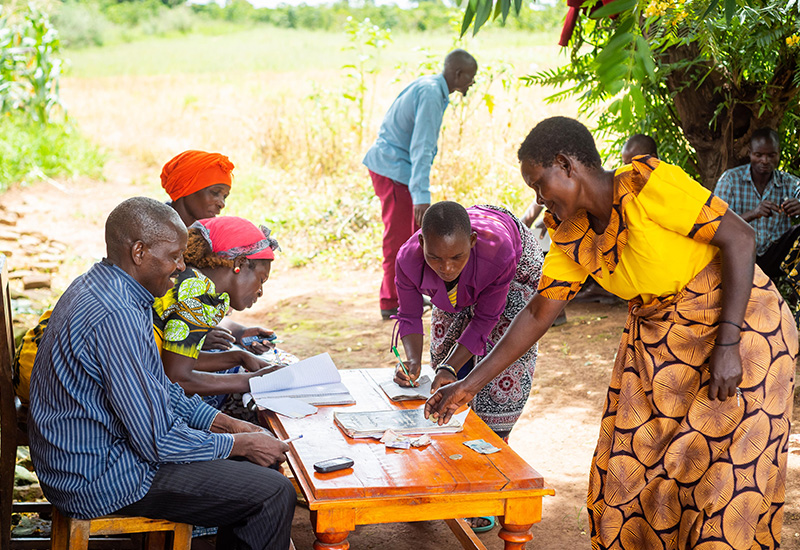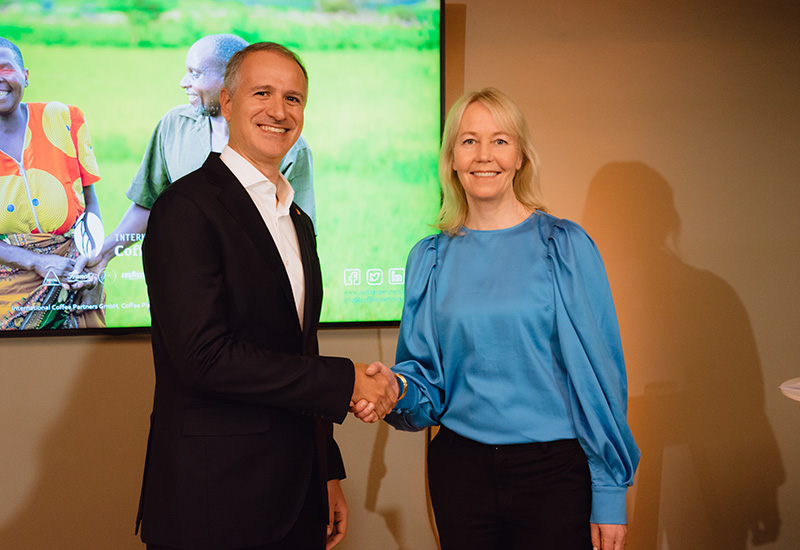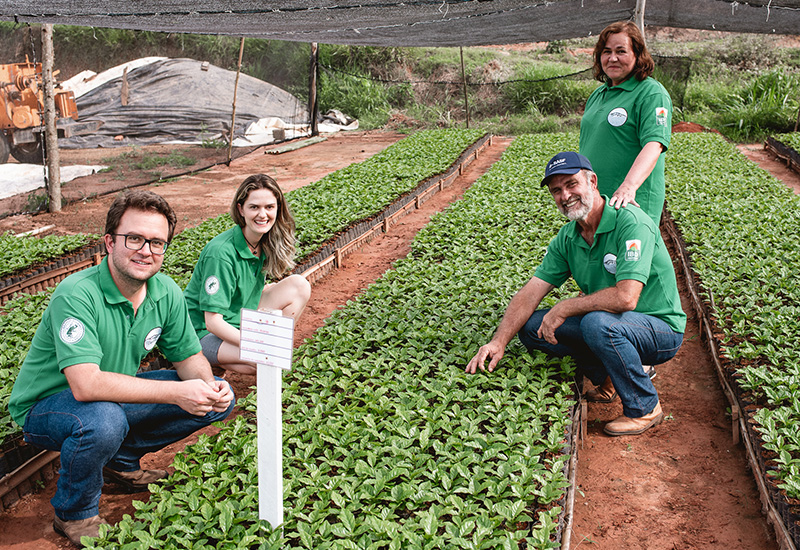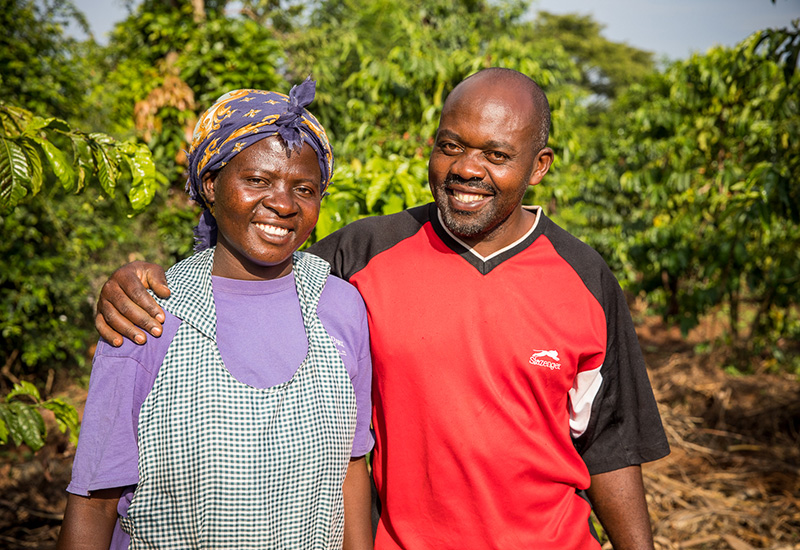Delta takes the lead at International Coffee Partners
Probably everyone in the Algarve knows DELTA Cafés. For many it might be a regular companion with whom they start another sunny day. It is less known, though, that Delta, together with seven leading family-owned European coffee companies, forms an initiative to help coffee farmers around the world.
The joint initiative, which comes under the common label “International Coffee Partners” (ICP), aims at making the income of smallholder coffee farmers and their families in developing countries more sustainable and their life less vulnerable. This spring, Rui Miguel Nabeiro, CEO of Grupo Nabeiro/Delta and grandson of Delta founder Manuel Rui Nabeiro, took over the chair of ICP from Kathrine Löfberg, Chair of the Board at Swedish coffee producer Löfbergs.
“We are indeed competitors in the coffee market,” Rui Nabeiro said at the official handover event in Lisbon. “But there is a whole world of production before the competition comes in and we have to take care of that world together.” At the core of this effort lies a holistic approach, which means that ICP not only looks at coffee production in an isolated way but at the family farm as a whole. This includes developing alternative and additional income possibilities but also making the coffee growing more sustainable and more resilient to climate change and some of its consequences, such as increasing droughts. The needs of youth, gender issues and off-farm activities are equally addressed by ICP. The initiative is aware of the “fluctuating coffee prices”, making “business planning oftentimes difficult” for the coffee farmers, as it depicts in its own brochure. But unlike other initiatives, such as Fairtrade International, ICP does not offer a higher price above that one on the current world market. Rather, the coffee farmers are supported in getting more agricultural as well as marketing expertise.


Since its founding in 2001, the initiative has reached more than 110,000 smallholder families in 13 countries – with 78% of these farmers living in Africa, namely Uganda, Tanzania and Ethiopia. Other projects take place in Brazil, Central America and Indonesia. ICP so far spent 20 million euros on 23 projects – with a strong perspective to double these amounts in the upcoming years. Also, with the Portuguese company Delta now being in the driver’s seat, ICP hopes to further strengthen its ties with coffee farmers in Brazil. Besides Delta and Löfberg from Sweden, ICP counts Neumann Kaffee Gruppe and Tchibo of Germany, Lavazza of Italy, Paulig of Finland, Johannson of Norway and Franck of Croatia as its members. ICPs projects are implemented by the German Foundation Hanns R. Neumann Stiftung (HRNS).

Meanwhile, the good news about Delta’s new leading role in this international initiative was overshadowed by the death of founder Manuel Rui Nabeiro. His attendance at the ICP handover event in Lisbon was one of his last public appearances before he passed away on 19 March at the age of 91. Nevertheless, his legacy will not be forgotten – almost everybody in Portugal seems to have known this visionary businessman, who was a socialist promoting “solidarity capitalism”.
Born in 1931 in Campo Mayor, in the Alentejo, into a humble family, Nabeiro began working at the age of 12, helping his mother in a small grocery store. He also helped his father and uncles to roast coffee at the time of the Spanish Civil War. In 1961, Nabeiro established Delta Cafés, giving rise to a business group that today leads the coffee market in Portugal and is expanding strongly into international markets. Delta Cafés now roasts 100 tons daily. In 1988, the Nabeiro Group – Delta Cafés was born. Besides coffee, the company is involved in food and drink, property, industry and services, distribution, tourism and catering. According to the Reuters news agency, the company’s sales rose 12% to 460 million euros in 2022, with more than 25% exported to around 40 countries.
Main image: ICP Uganda Gender













